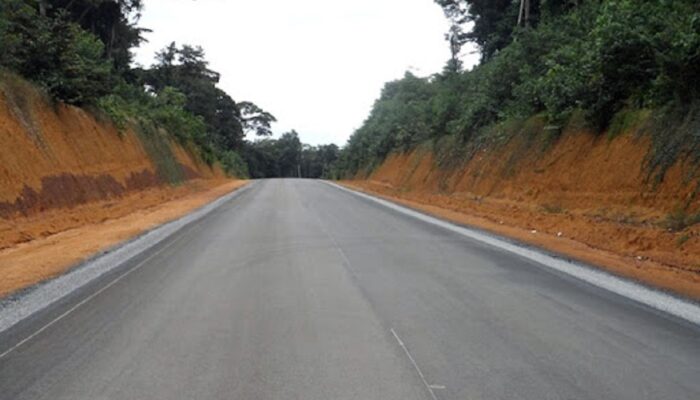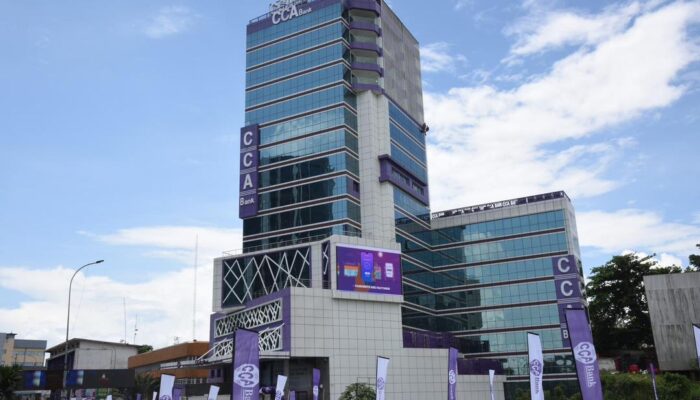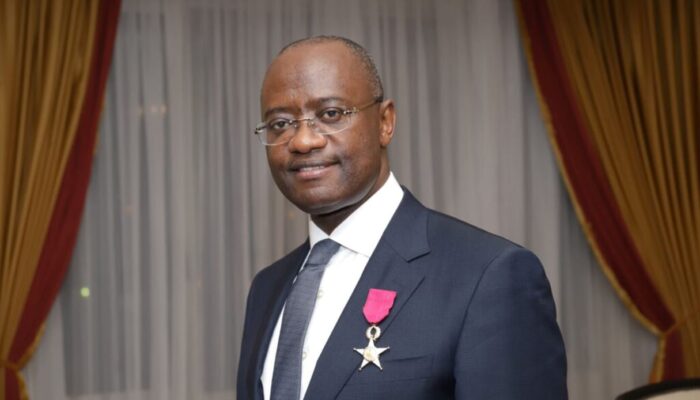Dr. Akinwumi Adesina, the president of the African Development Bank Group, today unveiled an ambitious five-point programme to attract much-needed private sector investment to accelerate Africa’s economic transformation and meet the challenges of a host of interlocking global crises.

Addressing the Governors’ Dialogue, a keynote event of the Bank’s Annual Meetings, Adesina on Tuesday called for a series of changes and reforms. He emphasized that without these changes, it would be impossible to create what he termed the “fit for purpose solutions bank”—a bank capable of scaling up private sector investment to the levels required to meet the continent’s needs.
“We need to be nimble, faster, and responsive… Only then can the African Development Bank Group really help transform Africa through the private sector,” he told the Bank Group’s Boards of Governors during their Governor’s Dialogue session to discuss, “Mobilizing the Private Sector to Accelerate Africa’s Transformation”.
“Essentially, the African Development Bank must re-invent itself… shifting from being a largely public sector driven financial institution to a more private sector driven institution. That will require changing instruments and processes to become more nimble and more appropriate for the private sector,” he said.
The challenges we face are formidable. At the same time, the opportunities to be seized are bountiful. We are unwavering in our commitment to continue to build partnerships and innovate in ways that enhance our efficacy enabling us to work on a grand scale,” Adesina told the high-level assembly of the Bank shareholders.
The Bank Group president said that as the world traverses multiple challenges, including geo-political tensions, unabating global inflation, a rise in food and energy prices, and climate change, the fact is, the resources of governments alone would never be enough to meet Africa’s development needs.
“The private sector must therefore play a critical role, whether it is dealing with climate change, expanding the access of countries to global capital markets, supporting financing for businesses, or delivering more cost-efficient infrastructure through public-private partnerships,” he said.

Establishing a standalone Guarantee Platform for Africa
To accelerate private sector investment into Africa, he highlighted five areas which he said needed attention by the Bank Group.
- First, is the preparation of bankable projects that can attract investments, which calls for aggregating and scaling up the currently disparate project preparation facilities on the continent.
- Second, the Bank needs to aggregate all its partial risk and partial credit guarantees and provide risk mitigation at scale for investors into a standalone Guarantee Platform for Africa (GPA).
- Third, there is need for an independent African Credit Rating Agency to provide fair assessments of risks in Africa, and to act as a counterfactual instrument to the current biases in credit ratings of African sovereigns and non-sovereigns.
- Fourth, strengthen the Africa Investment Forum, to continue to play a significant and strategic role as a marketplace for investors, and supporting its financial sustainability, either within the Bank or placement outside of the Bank.
- Fifth, the African Development Bank plans to scale up its financing to the private sector by tripling non-sovereign financing operations to $7.5 billion annually, over the next decade. This will require serious consideration of the Bank’s business model to do this, allowing it to take on more risks, while decoupling the risks from the balance sheet of the Bank.
Adesina added that today Africa has over $2.5 trillion of assets under management by pension funds, sovereign wealth funds, insurance companies and collective savings. Creatively leveraging these funds into development can be transformational.
Adesina stressed the Bank was also supporting the establishment of scalable private equity vehicles. For example, to mobilize private sector financing for infrastructure, the Bank established Africa50, as a private equity vehicle to develop infrastructure with market rates of return.
“Today, Africa50 has invested in portfolio infrastructure companies worth over $3 billion. We invested $20 million in equity in Africa50’s Infrastructure Acceleration Fund, which is mobilizing $500 million in private capital for investments in infrastructure,” Adesina explained.
He said he was pleased the Fund had reached its first financial close at $250 million in 2023 and attracted investments from 16 institutional investors across Africa—a first on the continent.
“We must take a hard look at ourselves if we want to do more with the private sector. If you ask the private sector, they will say we are too slow. That is true, because we still operate largely as a public-sector institution, with public-sector systems and processes,” he noted.
Adesina also called for the establishment of an independent Private Sector Advisory Group, similar to one the World Bank Group recently created.






